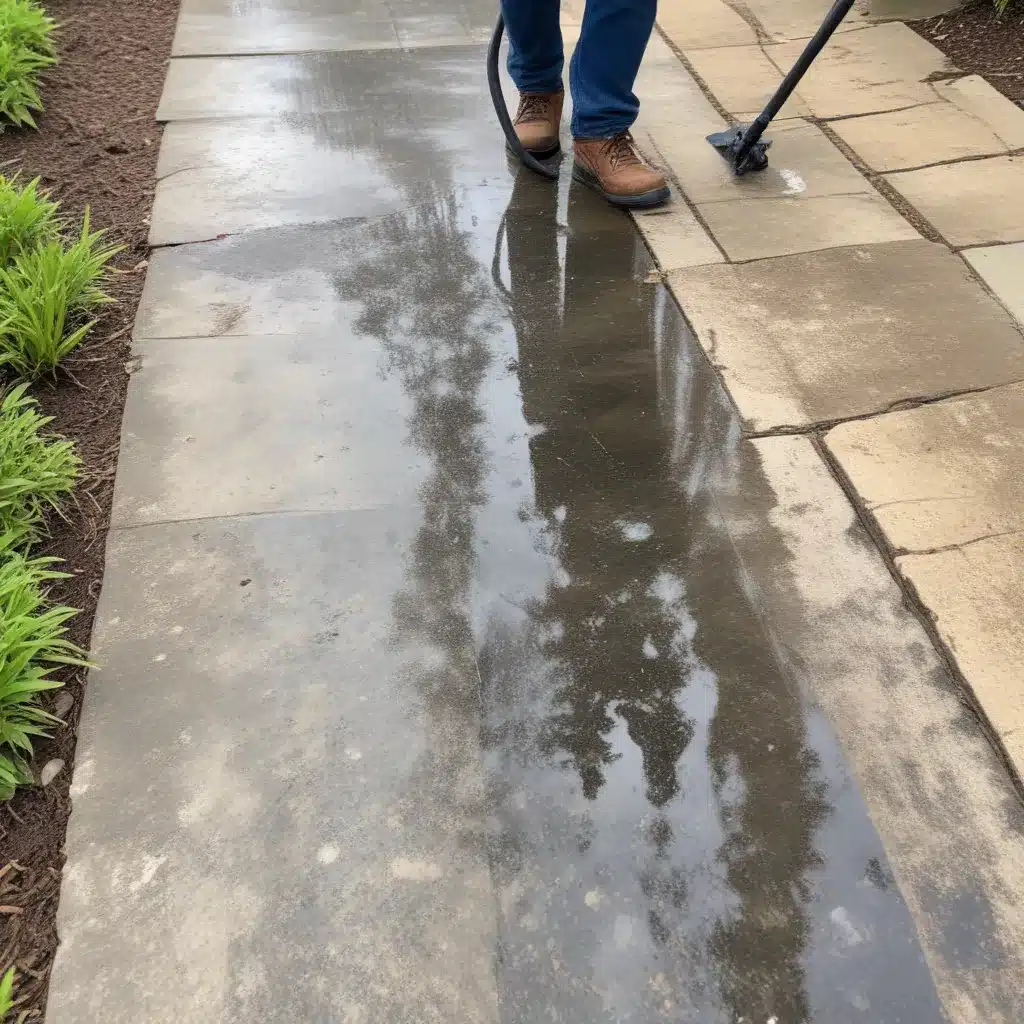
Compliance and Best Practices for Responsible Exterior Cleaning
As the homeowner or property manager in St. Louis, Missouri, maintaining the cleanliness and curb appeal of your building’s exterior is essential. However, this task comes with important environmental considerations, as the wastewater generated from pressure washing can impact local waterways if not properly managed. In this comprehensive guide, we’ll explore the current regulations, cost-effective solutions, and eco-friendly practices to ensure your pressure washing efforts align with local standards and protect the community.
Understanding the Regulatory Landscape
The City of St. Louis has implemented robust regulations to safeguard its water resources and prevent pollution from entering storm drains or local waterways. According to the St. Louis Metropolitan Sewer District (MSD), any pressure washing activity that generates wastewater must comply with the following guidelines:
-
Wastewater Disposal: All wastewater from pressure washing must be collected and properly disposed of, either through the sanitary sewer system or by a licensed waste disposal service. Discharging untreated wastewater directly into storm drains or onto the ground is strictly prohibited.
-
Containment Measures: Pressure washing service providers must use temporary berms, containment mats, or other collection methods to capture the wastewater and prevent it from flowing into storm drains or surface waters.
-
Cleaning Product Selection: The use of biodegradable, low-phosphate, or non-toxic cleaning products is strongly encouraged to minimize the environmental impact of the wastewater.
-
Permit Requirements: Depending on the scale and nature of the pressure washing project, you may be required to obtain a permit from the MSD or the Missouri Department of Natural Resources (MDNR) before commencing the work.
Failure to comply with these regulations can result in fines and potential legal consequences. By understanding and adhering to these guidelines, you can ensure your pressure washing efforts are environmentally responsible and avoid any costly penalties.
Cost-Effective Pressure Washing Solutions
The cost of pressure washing services in St. Louis can vary depending on the size of the project, the complexity of the cleaning required, and the specific equipment and techniques used. On average, homeowners can expect to pay between $150 and $400 for a single-story residential pressure washing service, while commercial or multi-story buildings may range from $400 to $1,000 or more.
To manage costs while maintaining compliance, consider the following strategies:
-
DIY Pressure Washing: If you have the necessary equipment and are comfortable with the safety precautions, you can opt to pressure wash your property yourself. This can save you the labor costs associated with hiring a professional service, but it’s essential to properly manage the wastewater and utilize eco-friendly cleaning products.
-
Bundled Services: Many pressure washing companies in St. Louis offer package deals that combine exterior cleaning with other maintenance services, such as window washing or gutter cleaning. These bundled offerings can provide a more cost-effective solution compared to hiring separate contractors.
-
Comparison Shopping: Reach out to multiple pressure washing providers in your area and compare their rates, service offerings, and adherence to local regulations. This can help you find the most cost-effective solution that aligns with your needs and environmental considerations.
-
Scheduled Maintenance: Regularly scheduled pressure washing (e.g., annually or bi-annually) can be more cost-effective in the long run compared to waiting until the exterior becomes severely soiled, which may require more intensive and expensive cleaning.
By exploring these cost-saving strategies and prioritizing compliance with local regulations, you can maintain the cleanliness and curb appeal of your property without breaking the bank.
Eco-Friendly Pressure Washing Practices
In addition to the regulatory requirements, St. Louis residents and businesses are encouraged to adopt eco-friendly pressure washing practices to further minimize the environmental impact of their cleaning efforts. Here are some recommended techniques and product choices:
-
Water Conservation: Use high-efficiency pressure washing equipment that can effectively clean with lower water consumption. This not only reduces your water usage but also generates less wastewater to manage.
-
Biodegradable Cleaners: Select pressure washing detergents and solutions that are biodegradable, low in phosphates, and free of harsh chemicals. These eco-friendly products are less likely to harm local waterways or aquatic life when the wastewater is properly disposed of.
-
Wastewater Recycling: Invest in a pressure washing system that includes a water recycling feature. This allows you to reuse the collected wastewater, reducing the overall volume that needs to be disposed of or treated.
-
Proper Disposal: Ensure that all wastewater generated from your pressure washing activities is properly collected and disposed of through the sanitary sewer system or by a licensed waste management service. Avoid allowing the wastewater to flow into storm drains or surface waters.
-
Grass and Gravel Barriers: When pressure washing on a paved surface, consider using grassy areas or gravel beds to help filter and absorb the wastewater before it reaches the storm drain. This natural filtration can help remove any residual contaminants.
By adopting these eco-friendly practices, you can contribute to the overall sustainability of the St. Louis community and demonstrate your commitment to environmental stewardship. For more information on pressure washing services and practices that align with local regulations, please visit https://pressurewashstlouis.com/.
Conclusion
Maintaining the cleanliness and curb appeal of your property in St. Louis requires a balanced approach that prioritizes environmental compliance and responsible stewardship. By understanding the regulatory landscape, exploring cost-effective solutions, and embracing eco-friendly pressure washing practices, you can ensure your exterior cleaning efforts contribute positively to the community and protect the local waterways.
Remember, compliance with MSD and MDNR regulations is not only the right thing to do but can also help you avoid costly fines or legal consequences. By working with reputable and environmentally conscious pressure washing providers, you can achieve the desired results while upholding your commitment to sustainability.
Stay informed, make informed choices, and take pride in your property’s appearance while being a responsible steward of the local environment. For more guidance on pressure washing services, regulations, and best practices in St. Louis, please visit https://pressurewashstlouis.com/.






